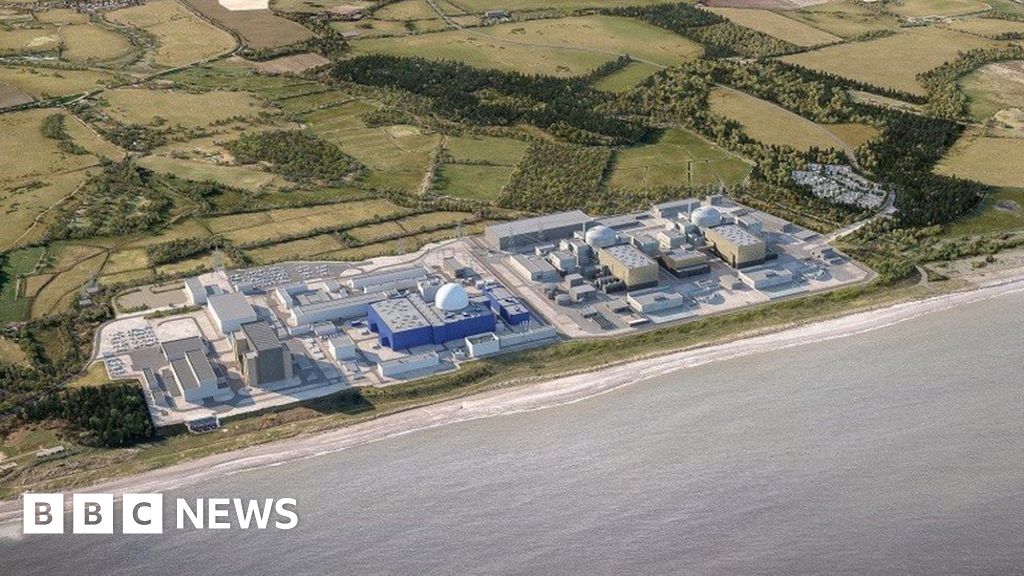ARTICLE AD BOX
Octopus boss Greg Jackson says the company expects a "seamless" switch for Bulb customers
Energy supplier Octopus Energy is to buy its smaller competitor Bulb.
Bulb collapsed last year amid rising gas and electricity prices and has since been run by the government.
Its 1.5 million customers will not see any change or disruption to energy supplies, the Department for Business, Energy and Industrial Strategy said.
The value of the deal has not been published but the BBC understands Octopus paid the government between £100m and £200m.
It is expected to be completed by the end of November.
Business Secretary Grant Shapps said the deal, approved by the UK government, would bring "vital reassurance and energy security to consumers across the country at a time when they need it most".
The government announcement on Saturday made no mention of the money involved in the deal, which was reached overnight between special administrators of Bulb and Octopus Energy.
The statement said that "due to high market volatility it is impossible" to forecast the true cost of Bulb.
For Bulb customers, credit balances on bills will be protected and direct debits automatically transferred.
Greg Jackson, Octopus Energy Group boss, said the company was determined to provide a "stable home for the future" for Bulb's customers and staff. Bulb has 650 employees.
Mr Jackson told the BBC he was confident the takeover would be smooth, saying the company had "a great track record" when it came to moving customers across companies.
The firm has agreed to share profits - if any are made from its new Bulb customers - with the government, for up to four years.
Octopus said the move would bring "an end to taxpayer losses", adding it was "paying the government" to take on Bulb's customers.
It was previously reported in July that Octopus had requested £1bn in public funding for the deal. However a source close to the company has since categorically denied this.
London-based Bulb was the biggest of more than 30 energy companies that collapsed last November following a spike in wholesale gas prices, which was partly caused by Covid restrictions ending and has since been exacerbated by the war in Ukraine.
It was placed into "special administration", meaning it was run by the government through the regulator Ofgem. The special administration measure is only used if Ofgem is unable to find another company to take over an energy firm's customers.
The state bailout of Bulb had been forecast to cost the taxpayer around £2bn by next year. It was the biggest state bailout since the Royal Bank of Scotland collapse during the 2008 financial crisis.
Natural gas prices have doubled since last October, and despite dropping significantly from a peak in August, many families are struggling to get by as they also grapple with rising inflation, which reached 10.1% in September.
As part of the mini-budget announced by former Chancellor Kwasi Kwarteng in September, the government announced an "energy price guarantee" - capping typical household bills at £2,500 - for two years, but Jeremy Hunt - who replaced Mr Kwarteng as chancellor earlier this month - then said the support will last until April.
Mr Hunt is expected to make a full statement on his spending plans on 17 November.
Every household in the UK is also getting an energy bill discount of £400 this October.
Mr Shapps, who became business secretary this week, said the deal highlighted the government's "overriding priority" to protect customers. He added he would do everything he could to "ensure our energy system provides secure and affordable energy for all".
Octopus will continue to use Bulb's technology and branding "for a transitionary period", the government's statement said.
The company, which was founded in the UK in 2015, said that before the Bulb acquisition it served 3.4 million customers.
Worried about energy bills? The BBC's Colletta Smith tells you - in a minute - about four discounts and payments that could help

 2 years ago
37
2 years ago
37








 English (US) ·
English (US) ·